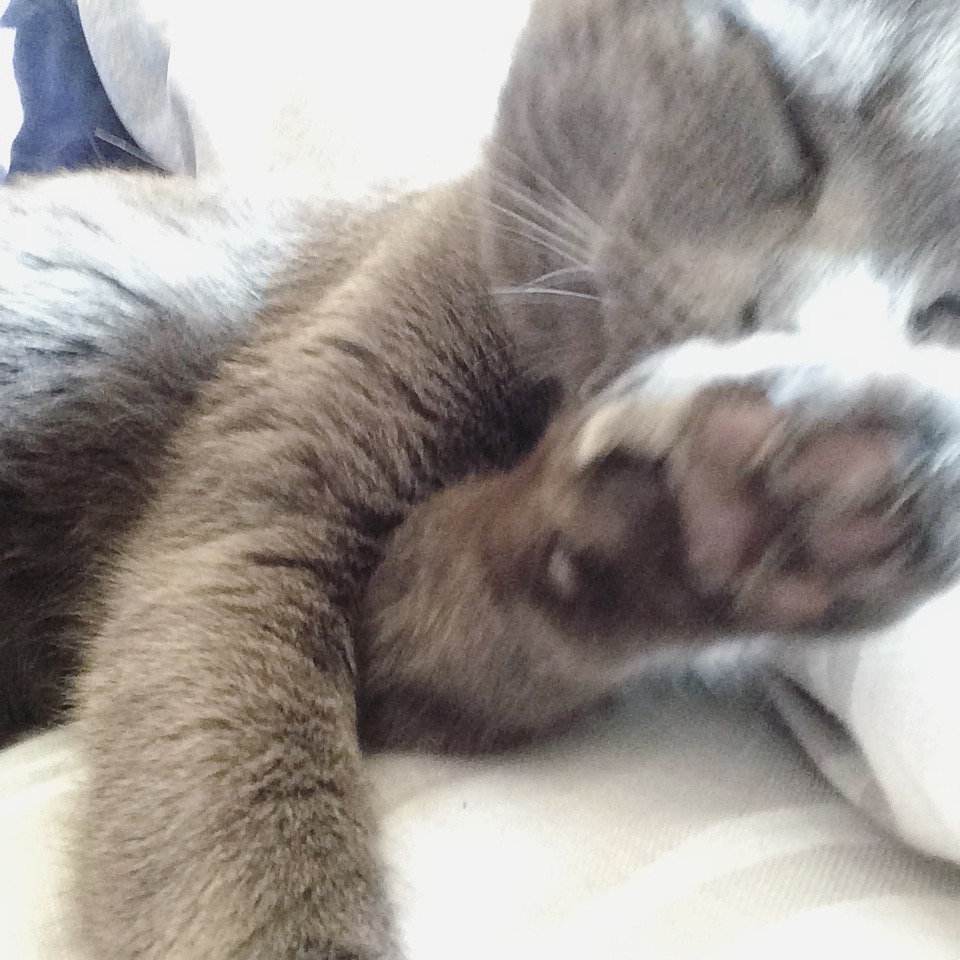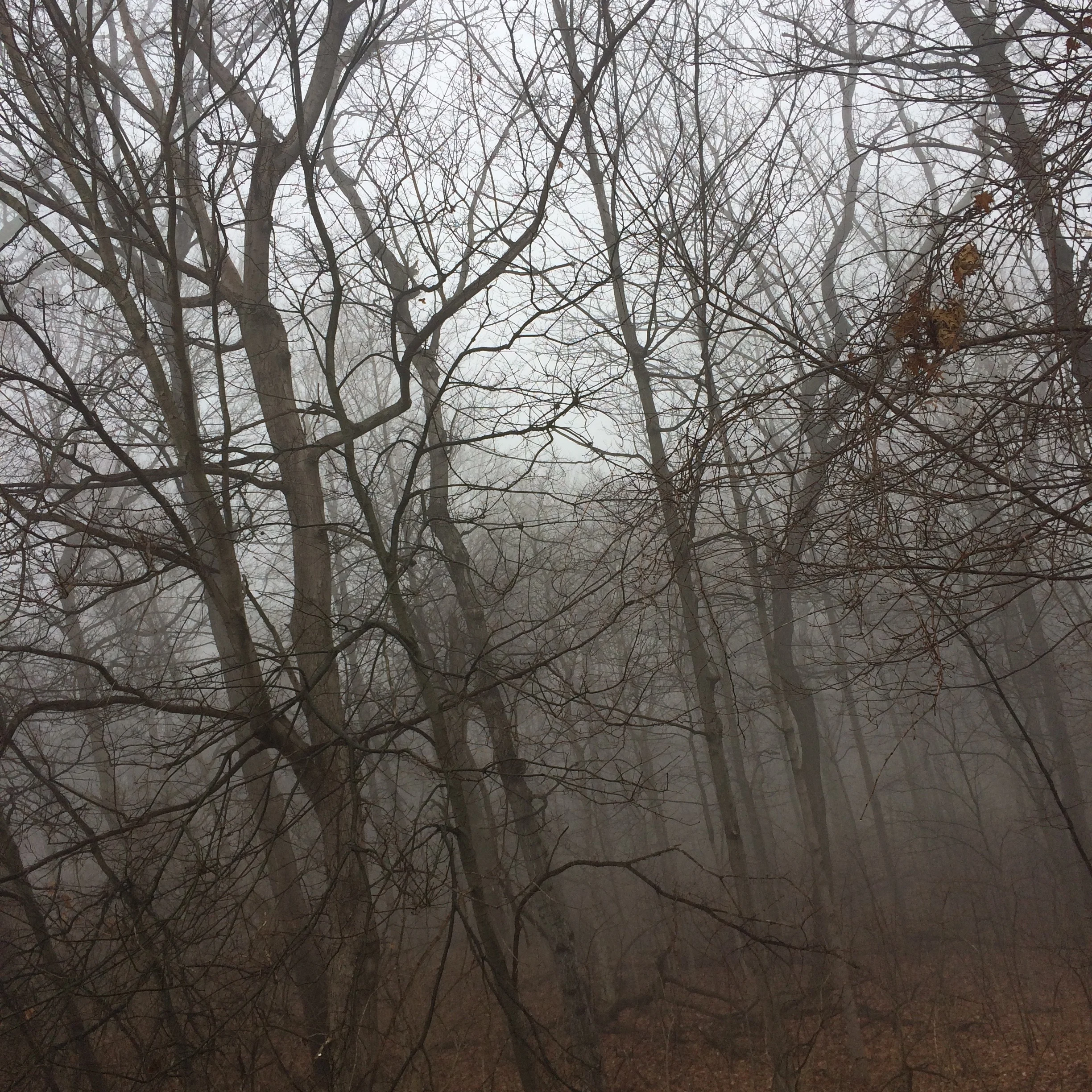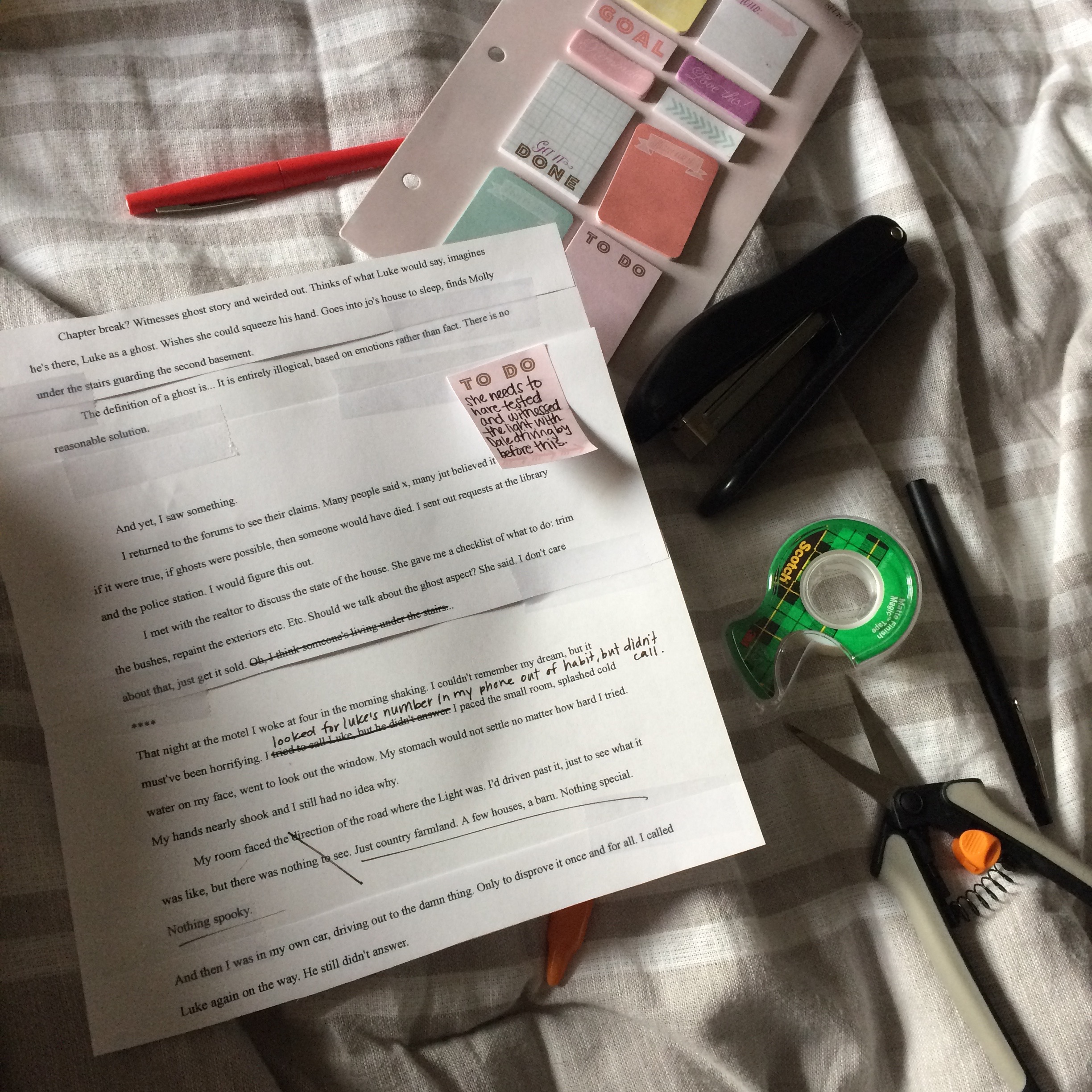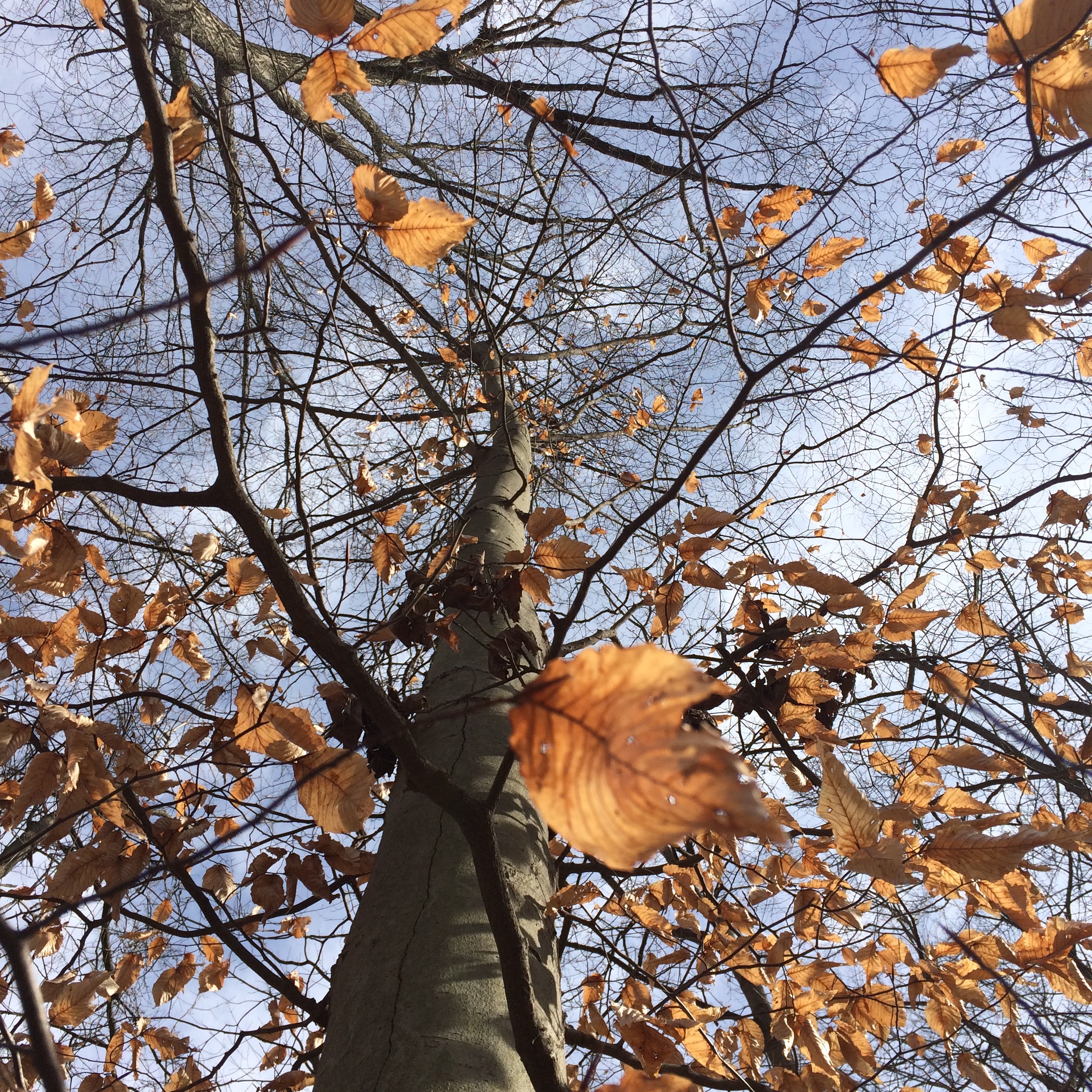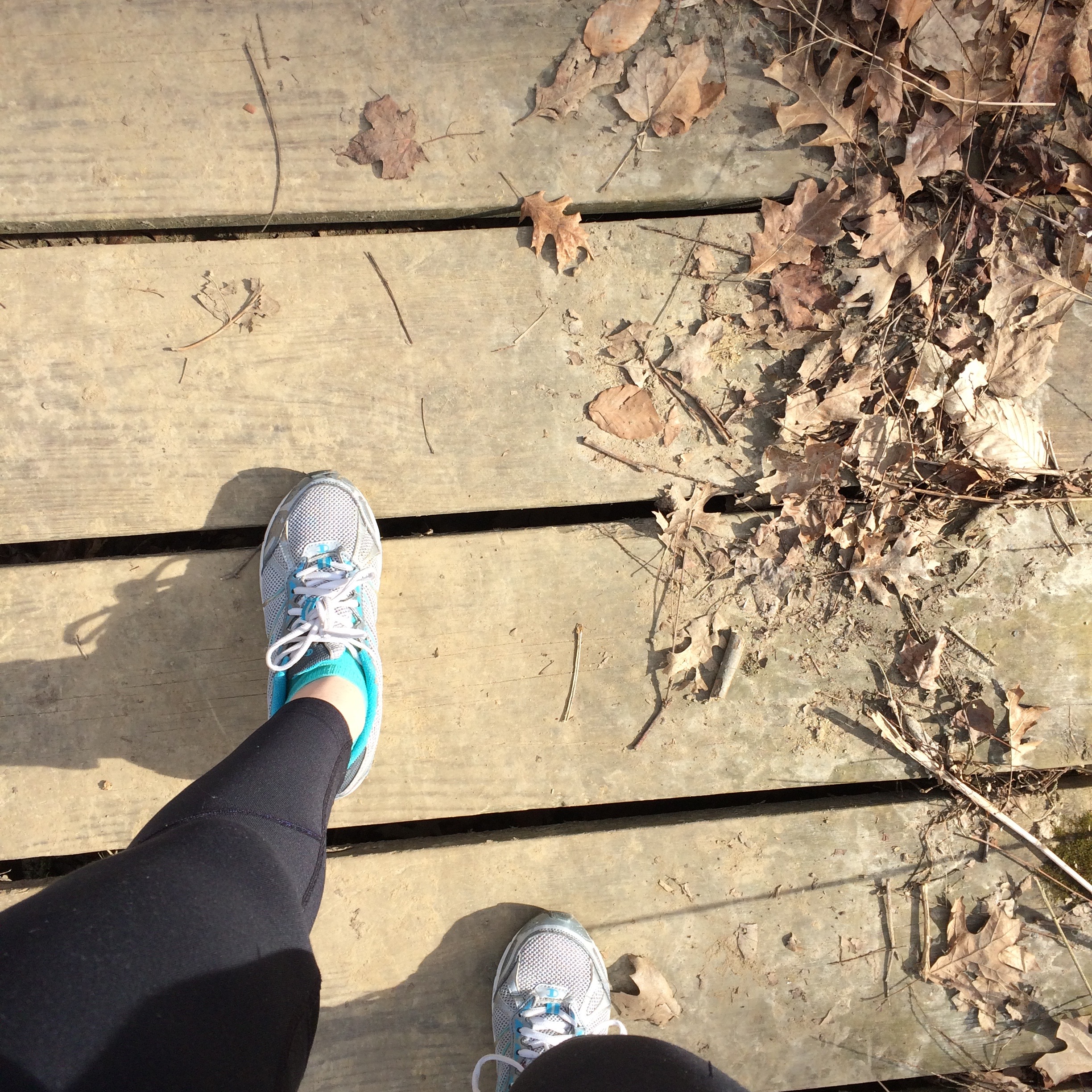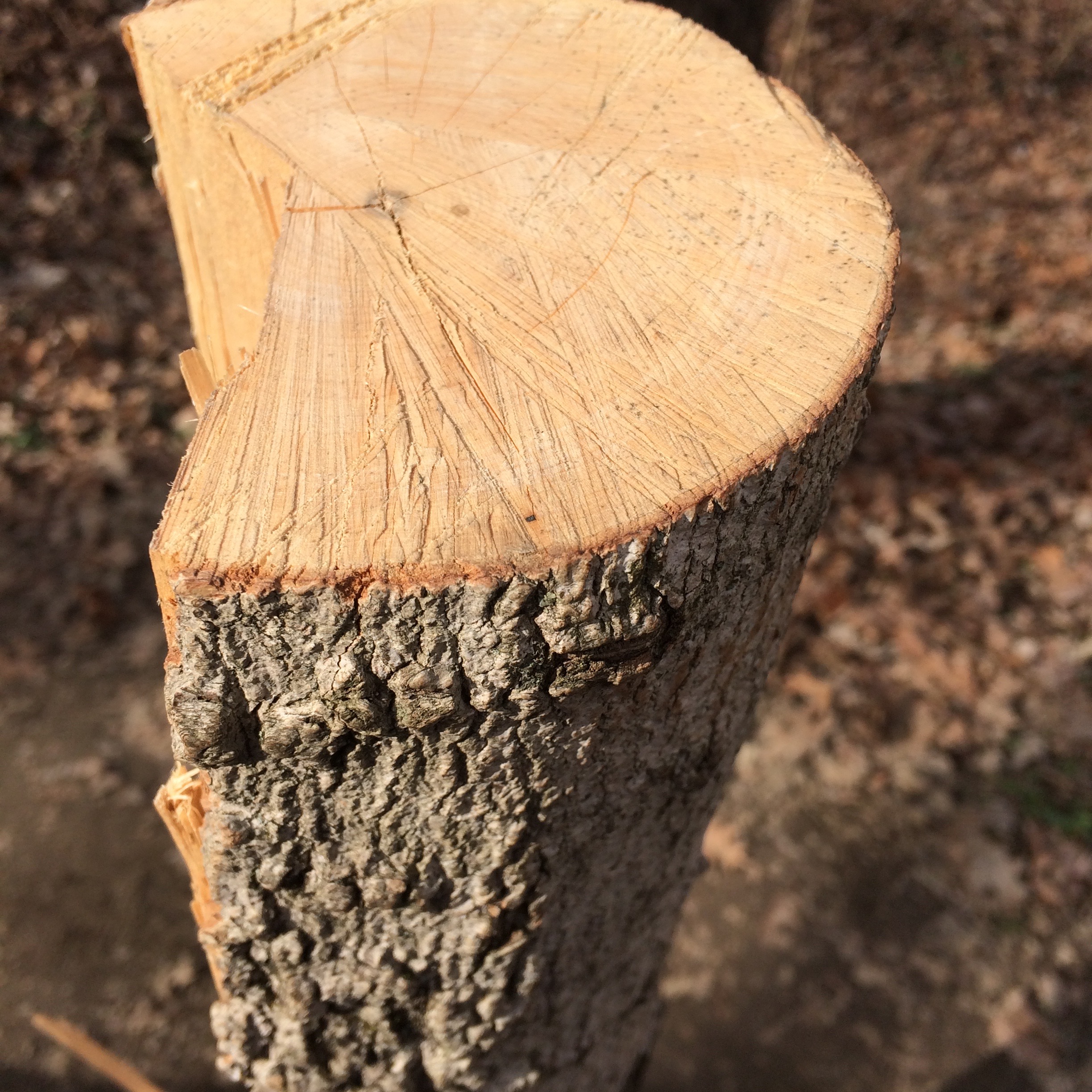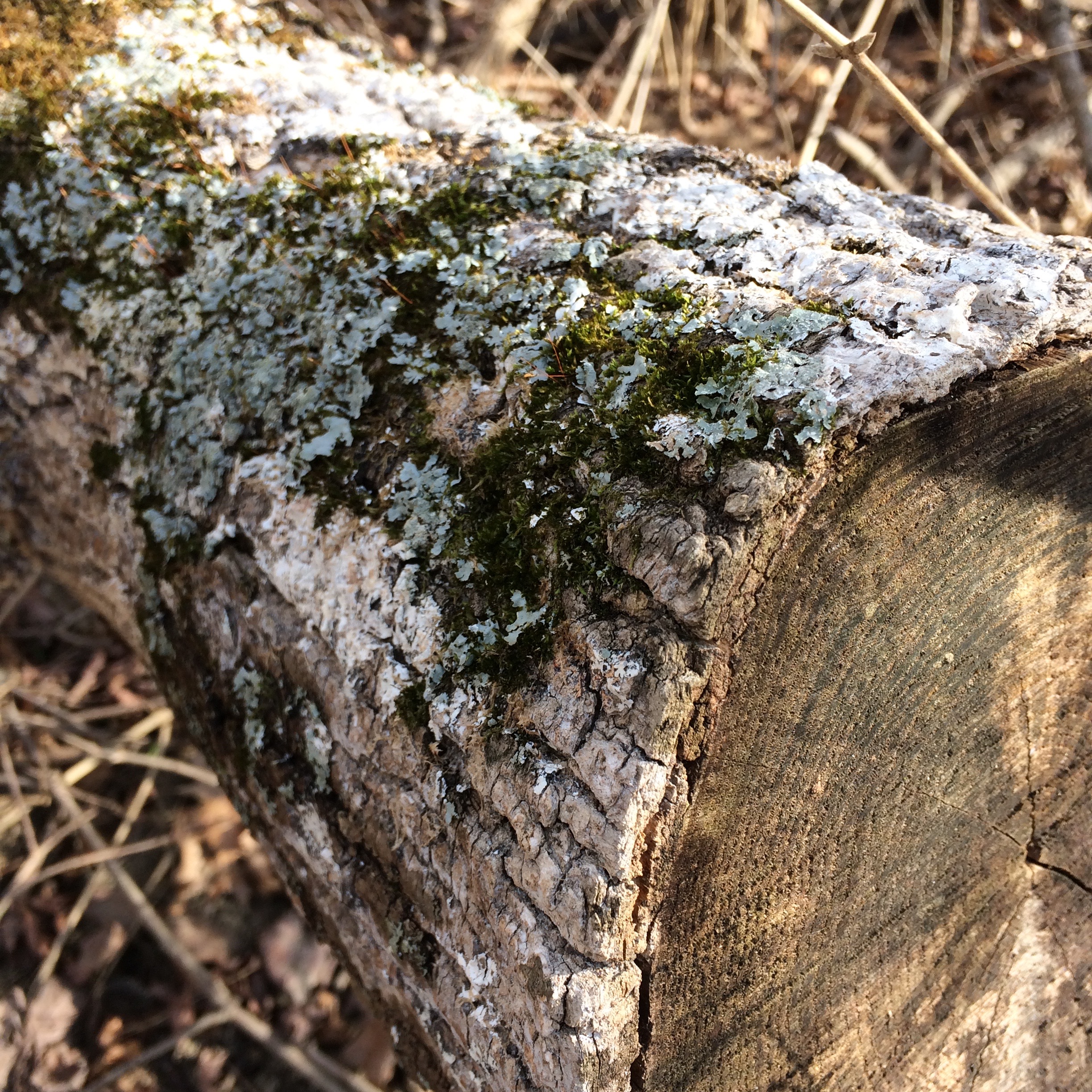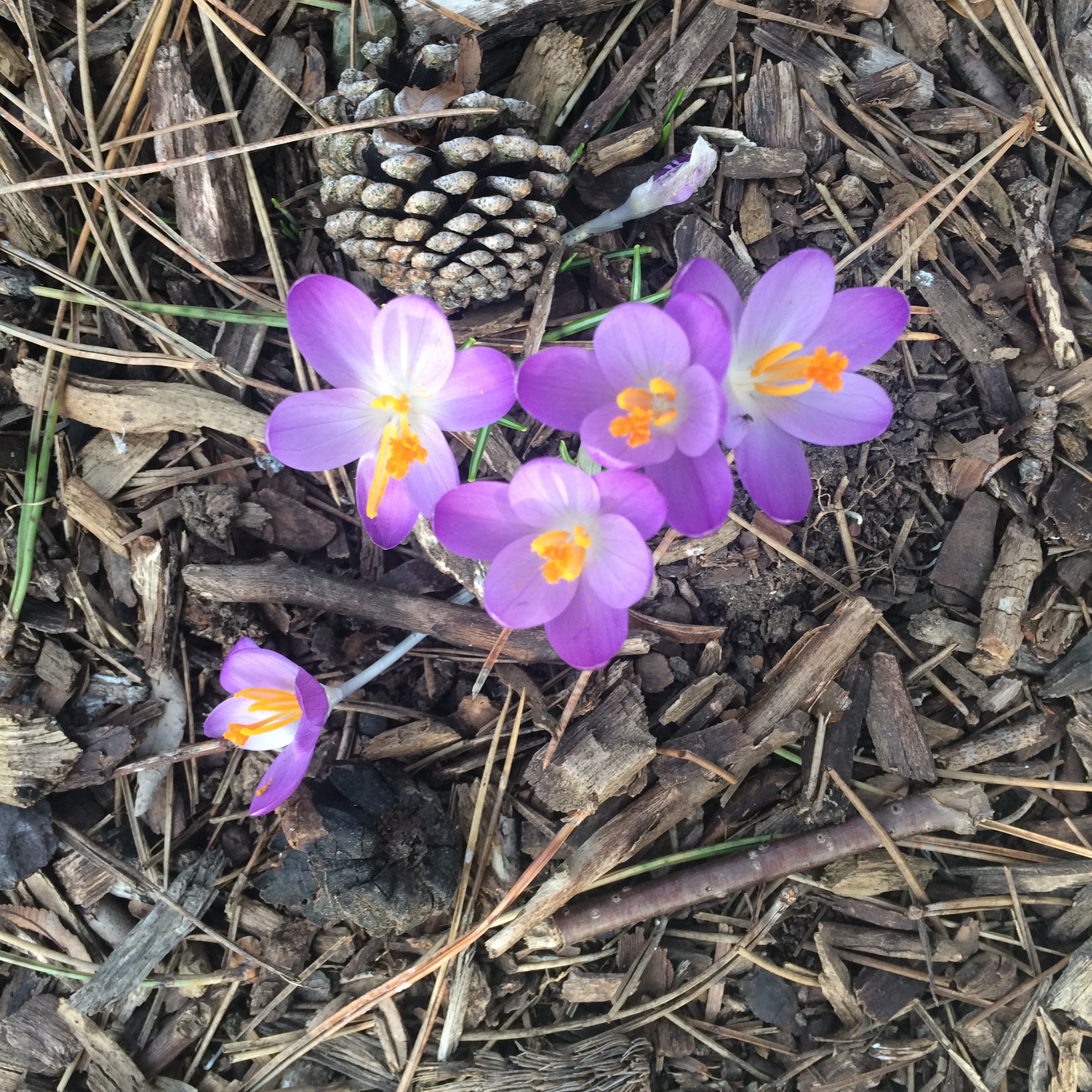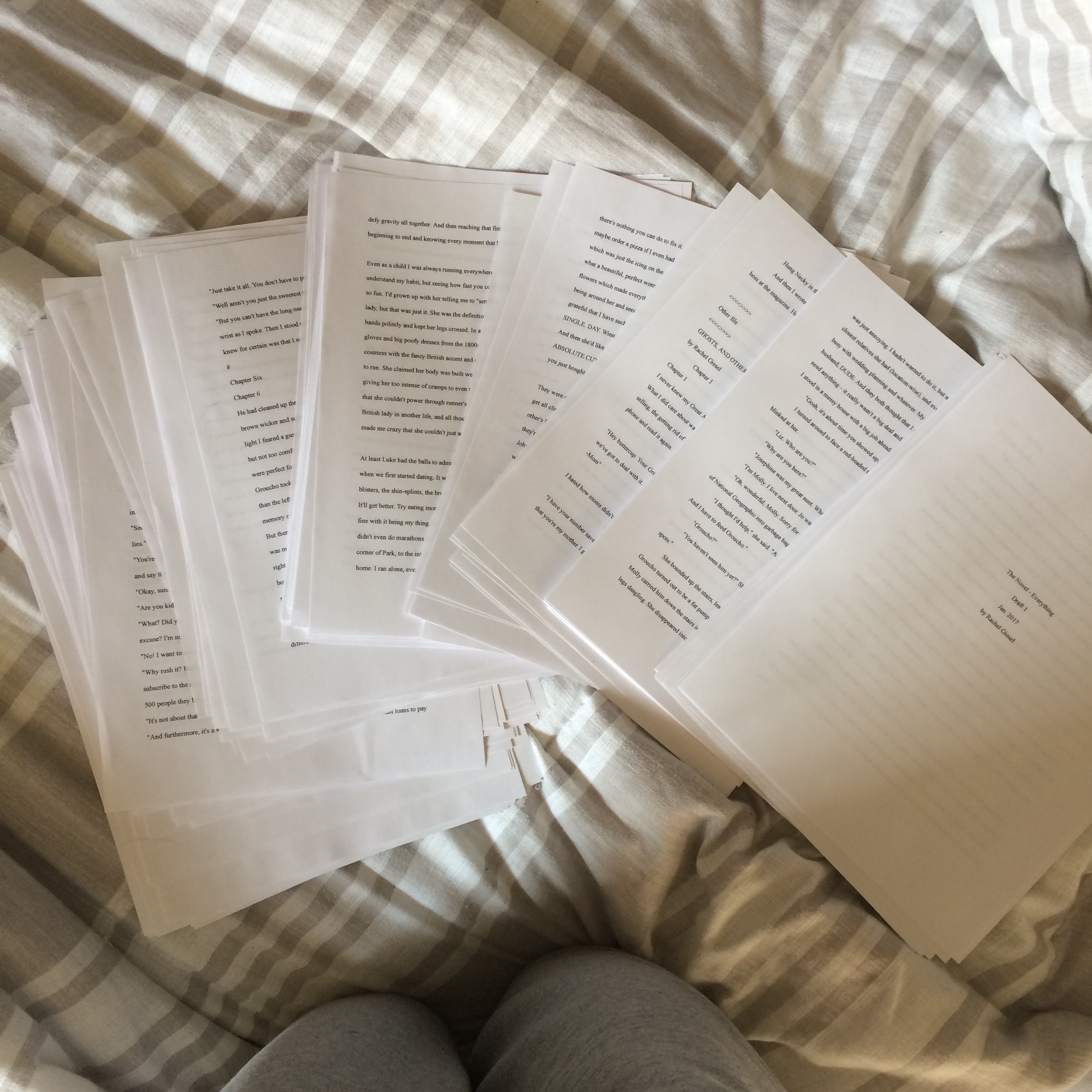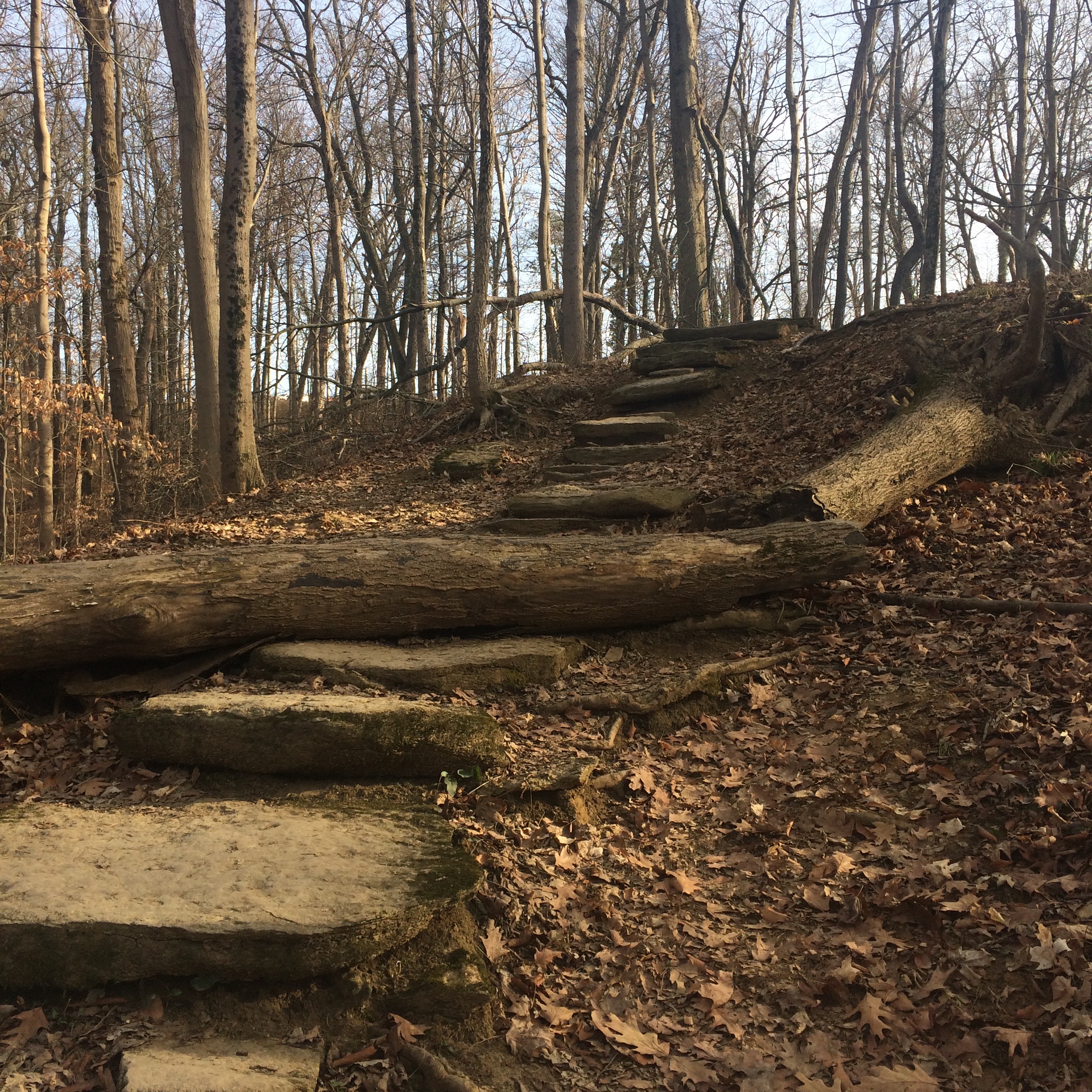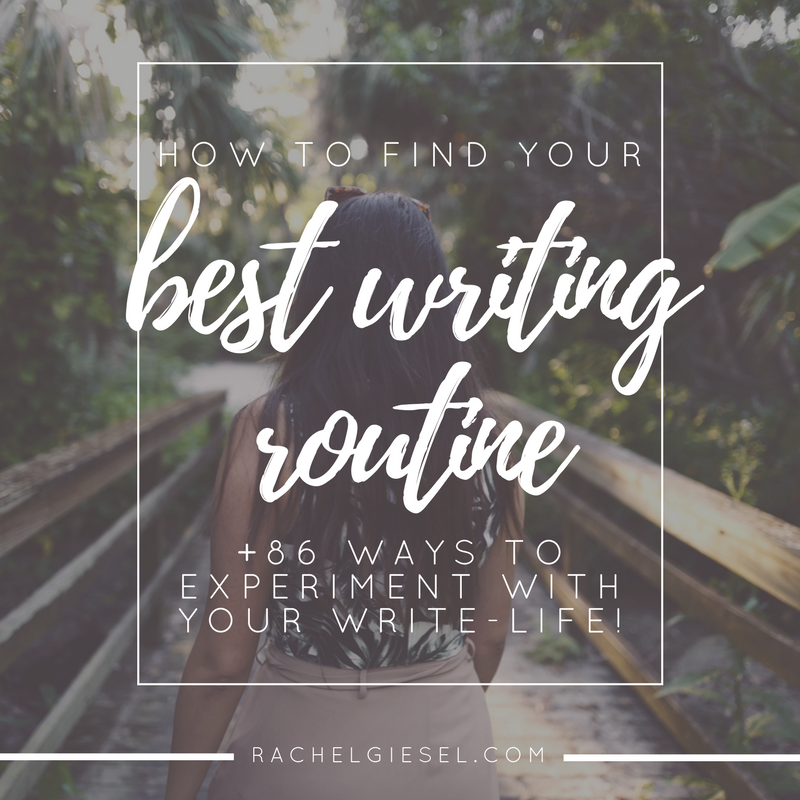I've been busy. Since November I've had "things" going on—a new job, family in town, holidays, birthdays. I've been struggling to find my rhythmic balance of life and work and writing. Holding competitive titles of "writer" and "employee" and "human" can make things tough. And unfortunately, my writing has been neglected in the process.
But I decided to change that.
Inspired by E.M. Welsch's post on conducting your own personal writing retreat, I decided to realign my energy on my writing with a DIY at-home writing retreat. Lucky for me, I had a four-day weekend from my day-job, and I packed those days with literary happiness.
And it was awesome.
The Goal
My intentions were to have a weekend creative writing retreat to get back to my roots. I wanted to read, write, and feel better about where I'm at in my writing life.
I didn't want to get x-amount of words written or x-amount of pages read—this wasn't a numbers game. Instead, I wanted to just focus on the act of doing. I didn't marathon to "get it all done" (whatever "it" is) because this wasn't about pushing myself to extremes. This was about slowing down—curling up with a book, putting words on the page gently, thinking, breathing, walking, dreaming.
So I didn't have any real constraints or goals—just be literary and be happy.
And it worked!
What I did
I read The Mothers by Brit Bennett (*affiliate link!). I read without the pressure to hurry it up and add it to my "have read" list. I wrote some-numbered-draft of my novel, and figured out what needs to be done with it. I wrote without the pressure to hurry it up and "have written". I went forest-bathing. I walked without urgency, without looking at the clock, and noticed the details of the world around me. I engaged another creative pursuit, photography. I got physical, with yoga and walking. I sat with my thoughts and no agenda, and dreamt of all the places I want my writing to go. I imagined my name on the cover of a published book. I discovered things about myself.
I took the time to get back to my best place of writing, to get inspired, to be the writer I want to be.
the full list:
Wrote 34 handwritten pages (14 of those in one day!)
Read over 150 pages in my book
Listened to some beautiful and inspiring craft and mindset talks
Took the Myers-Briggs test and studied how being an INFJ influences my writing and my writing life
Went forest-bathing for 4 hours
Stretched out with some yoga
Read through some of my old notebooks
Literally cut-and-pasted the rough draft of my manuscript together
Solved some of the plot holes / kinks in my novel
Realized I have A LOT more of this novel written than I actually thought, much of it not even included in a digital copy yet
Fell in love with the novel again (this is HUGE and much needed!)
Found and researched an agent to submit to later, when this is done
Imagined my book with my name up for sale in a bookstore
Organized my writing projects and all the stories I want to write
Talked to my parents on the phone, separately, for no reason except to catch up
Engaged with the writing community on social media and email (thank you for sharing your thoughts with me!)
This was a solid weekend retreat. I made progress in my writing life, but most importantly, I felt better. By the end of the retreat, I was energized, inspired, motivated, empowered. I felt good about where I was in my writing life and where I was going. I felt good about what I'd accomplished. I felt good about everything! This was a much-needed retreat, and it paid off.
It wasn't all roses and rainbows (although fog and purple flowers are good too). What I mean is, it wasn't perfect, and that's okay. I learned and grew as a writer. I now know that this is something I need to do more often, and I know what I can do a bit differently to make it even better.
Lessons Learned
Less pressure, more present-moment
I'm a dreamer. I think big-picture, long-term. This is great for planning, aspirations, knowing where to go. It's NOT good for getting things done.
Often, I'll think of the end-result dream: the finished manuscript, the published book. Then, I look back to where I'm at: the scribbles in my notebook, the unfinished scenes on my computer. The distance between the two images seems so vast, and it's paralyzing. I pressure the story to be done now. I pressure myself to write now and write a lot. I push myself towards that big dream with an urgency to achieve it ASAP.
And this doesn't work.
I get frustrated with the writing. It doesn't come out well. Very little gets done. The bit that does "get done" isn't quality writing at all.
But, this weekend, I didn't pressure the writing to do anything, to be anything. I focused on the activity itself. I grounded myself in the present moment, motivated by present desires. The lack of pressure, the lack of need to get anything done, removed a weight from my shoulders. The writing flowed, the muse showed up, the work got done – and I felt good.
I asked the muse my questions. I asked her to help me out, be present with me, and she came through. I put physical pen to paper and wrote, and the muse gave me beautiful gifts – laugh-out-loud gifts, magical gifts, sweet gifts, untangling-the-knot gifts. When the muse is with you, everything is so much better. I forgot how beautiful and gracious she can be.
I wrote more this past weekend than I had in months. Partly because I gave myself the gift of time. But also, because I didn't pressure myself to "do it all" and "get it done." I didn't focus on goals and end-results, but the act of writing itself. I was patient. I was present. It felt better this way. And, it happened to be more productive too.
I'M AN INFJ, and that influences my writing.
Writing is tied to the self. I already knew this. If you've read anything on this blog, you realize how much I emphasize that understanding the self is the key to succeeding with your writing life (I talk about this so much in The Real+Good Writers's DNA and The Real+Good Writer’s Brain (discontinued). Everything I do is tied to this understanding that writing and the self must be BFFs.
But I found another connection: The Myers-Briggs Personality Profile.
After listening to Lauren Sapala's talk, "How to Train Your Dragons" (an exclusive talk for her email subscribers), I became curious as to how my personality influenced my writing. Lauren has done extensive research on the link between personality and writing, and everything she said was a direct reflection of me. (I was nodding my head, mouth wide-open, listening to her).
So I dove in head-first. I took the test. I learned about my personality. I studied how it connected to my writing and my writing life. And I cannot thank Lauren enough for opening my eyes to this.
“Suddenly, pieces of you that seemed odd-shaped and like they didn’t fit anywhere all came together. Suddenly, you understood why you were different.”
I am an INFJ, which is Introverted, Intuitive, Feeling and Judging, according to the Myers-Briggs profile. This explains why I think big picture, why I love planning, why I pressure the writing with immediacy and perfectionism. This is why I can get so wrapped up in dreaming, why I need purpose and meaning, creativity, and helping others in everything I do. This is why I work so hard. This is why I struggle with so many options, with the "right" story, or job, or life. This is why I have a weird issue with time and I prioritize "should-dos" over desires. This is why I'm the person and writer I am.
I'm enthralled with this. I'm going to be studying the effects of personality on the self and writing a lot more, because it simply makes sense. If I can learn about who I am and how that influences what I do, I can learn the flaws in my writing life, and work to fix them. I can work to accept myself, and come to a deeper understanding. I can work to be a better me. I don't know why I resisted learning about this for so long.
Get to know your personality type. Lauren's got A TON of resources on her blog, and she wrote a whole book about the INFJ writer, which I hope to dive into soon. Get started with Lauren's amazing research of Myers-Briggs and writing. If you're an INFJ like me, you'll be AMAZED.
the activities and mindset of this retreat should be an "everyday" lifestyle thing.
I listened to podcasts on writing craft and mindset while I cleaned my house and drove around doing errands. I read my book in bed. I wrote outside on my balcony (side note: I think I write best outside, actually, which is making me curse the winter). I thought about writing while walking around Target – thinking of character conversations, plot untangling, my book with my name on the cover on the bookshelves. I did my normal life things; I just infused writing with it a bit more.
Nothing I did required much extra effort than infusing attention towards writing. I didn't lock myself away for 8 hours (although, that would be beneficial for other intentions). I didn't put my life on hold. I just made a conscious shift to do writing AND life. And it was easy.
There's no reason why I can't infuse these simple activities and mindset into my daily lifestyle even more. This was kind of a wake-up call in realizing that I need to prioritize this. It's easy to do; I just have to do.
I think the key ingredient to getting it done this time was by setting intentions, removing the pressure, and consciously deciding to do it. By giving this weekend a name—a writing retreat—my brain was on board. But other than that, it was any other weekend. Giving it a name, a title, and completely owning it, consciously choosing to pursue it, made a HUGE difference.
So really, it's just choosing to prioritize writing, allowing my brain to be attentive to my work in every situation.
At the same time, I can't let myself get distracted if I want to make significant progress, which leads into the next lesson...
Plan for distractions to happen, and prioritize writing anyway.
The reality is: I am a writer, and a human. I have a significant other I want to spend time with. I have chores to do. I have errands to run. I can't just forget about everything completely and focus on writing 24/7. And I shouldn't.
Writing has to fuse with the rest of life. They aren't two separate things. And you can't have one without the other. I realized (for some weird reason) I've been keeping them apart, when they really need to become better friends, fusing with each other.
My significant other works weekends. So, on Saturday and Sunday, he was gone for much of the day. During this time, my writing retreat flourished. I read, I wrote, I did all the things. When he got home, things were a bit more difficult. I wanted to spend time with him, to do dinner, to watch our shows. And I felt a wee-bit guilty for not doing writing things—this was my retreat after all!
But taking a short time away from intense creative work was helpful. I got my social interaction in, talked to him about what I was doing, what was happening in my novel, and gave my brain a break from my own little world by listening to his day and his needs. I made a conscious decision to analyze plot and character development in the shows we watched. And I felt loved by spending quality time with him.
We did have some big errands to run on Tuesday, which took up pretty much the whole day. The next time I do a retreat, I'll try to plan big stuff to occur outside of the retreat. This was the worst part of getting distracted. But, sometimes life needs attention too. I'm going to try to be more conscious of the balancing act between writing and life, and infusing them together whenever possible.
Writing is not just an in-your-head, directly-PUTTING-WORDS-ON-PAPER thing.
If I want to make significant progress with my writing, I'm going to sit down and write. That's what we all think of when we think of "writing," but that's not the end-all-be-all answer. Writing is very internal. It's making things up in your head and then turning them into little shapes and letters in a particular order that add up to some meaning.
But if the external is neglected, the internal isn't going to shine through. Both internal and external need to be in harmony with each other if you want the writing to succeed.
One of the best parts of the weekend was Monday, when I didn't focus on the writing directly, but on other creative, spiritual, physical things. I stretched my muscles with some yoga. I spent four hours going forest-bathing (which is what I'm going to call going into the woods from now on, because it's a real thing and sounds SO much cooler than just "going into the woods"). I used a different creative outlet—photography—to stretch my brain while actively using my body and following a gentle path through the trees.
And it just felt good.
I realized that paying attention to the body is a necessary thing if I want my writing to succeed. I've got to get out of my own head and into the world, actively doing instead of just dreaming. I'm going to be intentionally physical more often.
You should definitely create your own DIY at-home writing retreat ASAP
If this post wasn't convincing enough already, I urge you to create your own DIY at-home writing retreat too. Get back to your writing roots. Write, and read, and live for the sake of doing it, not to get to some big-numbered goal. There are good reasons to set goals and follow them, but sometimes you just need to relax and recharge. This kind of writing retreat does just that.
Give yourself a weekend of writing life. Follow your in-the-moment desires (if you want a second banana, take a second banana. If you want to go forest-bathing for four hours, go forest-bathing for four hours). Write for the sake of writing, without pressuring it to be finished or better or solved. Read for the sake of reading, without thinking of the dishes or your novel or anything else but the story in front of you. Make your writing life a priority, focus, and do it.
Your writing will thank you for it.
Happy Writing!
♥
Have you ever done a DIY writing retreat? Did you stay at home or did you go elsewhere? What activities did you do? How'd it go? Do you have questions about how to do this yourself?


